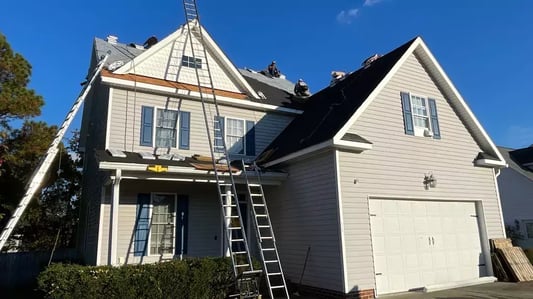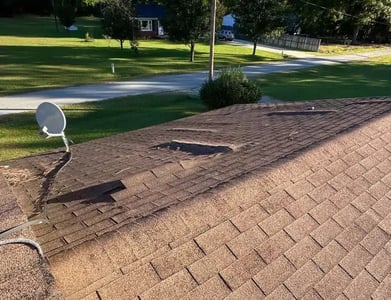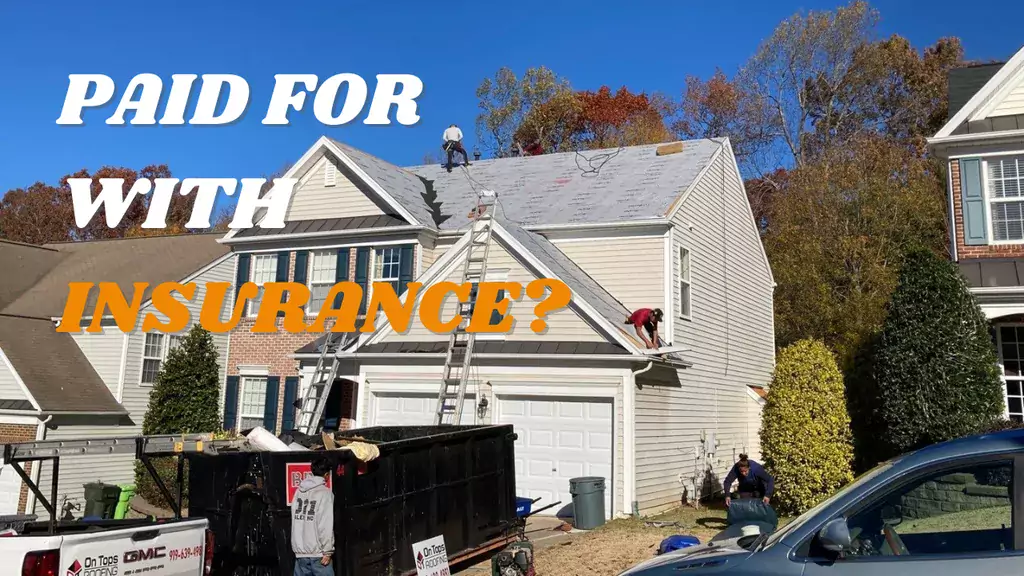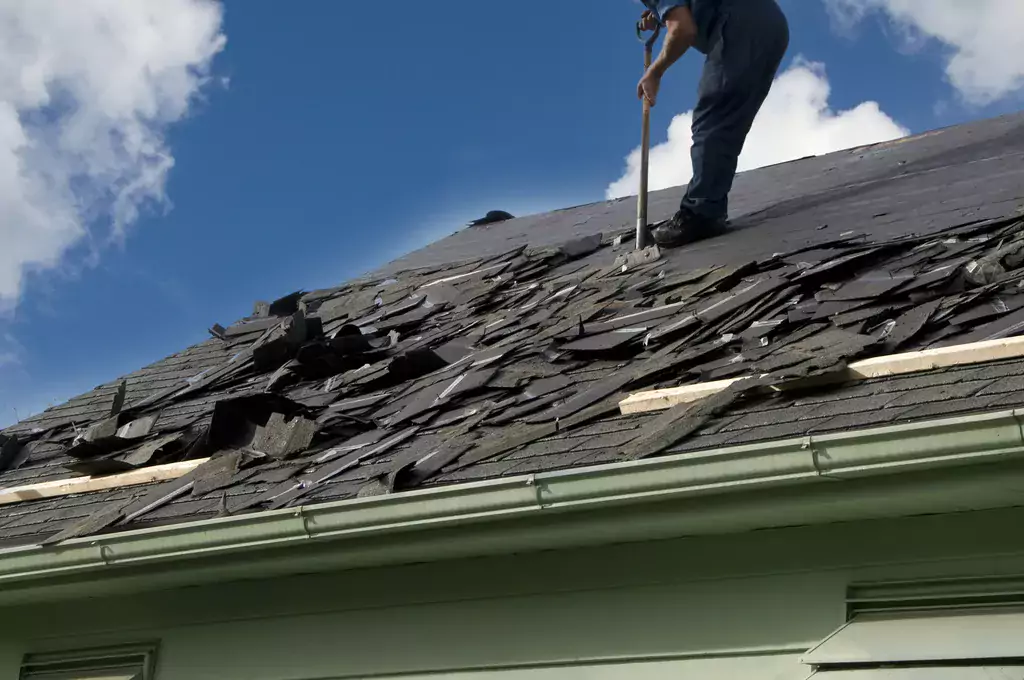How Does On Tops Roofing Handle Payment?
After deciding you need a roof replacement, one of the first things you’ll probably start thinking about is how you’re going to pay for your new...
When your area gets severe weather, a LOT can go wrong. Powerlines can be knocked out, roads can be littered with debris, neighborhoods can be flooded, and quite frequently, roofs can be damaged.
Obviously, these are all things that you aren’t gonna want to deal with after a storm, but we just have to get through it. In the case of your roof, you’ll need to get it checked up on when a storm comes through town, as you may have received some damage. Roof damage can be pretty costly repair, and in some cases, may require you to get a full replacement.
The faster you act in cases like this, the more likely you are to get your insurance to cover the costs of the repair or replacement. Because this process can be convoluted and confusing, we wanted to write about when homeowners insurance will cover a roof replacement.
In this blog, we’re going to discuss:
Let’s get started!
In order to get your homeowner’s insurance company to pay for your roof replacement, your particular case will need to meet a few different criteria.

The first, and most important, is that the cause of the roof damage must be determined to be the severe weather you experienced. We’ll talk more about what may disqualify you to get the roof replacement covered in the next section, but if an adjuster or inspector thinks that the damage was either already there, or wasn’t caused by some kind of weather, then your policy will likely not cover the cost of a replacement.
Some severe weather conditions that might cause enough damage to need a roof replacement could be: high-speed straight-line winds, tornados, thunderstorms, hail, and heavy snow. Tree damage that also occurs during this type of weather should also be covered, as long as it wasn’t preventable.
If you got some weather like we described in the previous section, it’s a good idea to get in touch with the insurance company as soon as possible. If you leave damage long enough for more damage to occur, like rotted roof decking, your insurance claim may be denied. It's possible than an insurance company may consider that additional damage to be caused by neglect, rather than the initial storm damage.
The reason why that is important, is that your insurance may not pay for a full roof replacement, even if your roof needs one. If they believe that the storm damage could be fixed by a repair, they will provide the cost to fix that repair, even if the roof itself needs to be replaced.
Your insurance will likely only want to pay for a replacement or repair if the problems were caused by storm damage or other such events. If the damage was caused by an older, worn-down roof, they will likely deny the claim. They also will probably not look kindly on a roof that had branches hanging over it, as they are theoretically something you are supposed to keep clear of your roof.
Essentially, your insurance will most likely not cover a replacement when the damage is a result of the roof’s age, general wear and tear, or a lack of maintenance (gutter cleaning, tree trimming, etc).
After the storm clears, and you’ve received some damage, you’ll need to file the claim through your insurance company to get those repairs taken care of. After you’ve done that, you’ll begin working with one of their adjusters, who will inspect the roof and try to determine the cause of the damage.

Depending on how obvious the damage is, this may need to be the only real step you have to take. If it’s something like a tree falling into your roof, where it was clearly caused by the storm, then the insurance company should take care of it. But in situations where the damage is less apparent, it might be more difficult to get them to help you.
The quality of coverage you’ll receive will also depend on your insurance policy. If your claim gets approved, you’ll get a check for your roof’s Actual Cash Value, or Replacement Cost Value, according to your insurance policy.
Actual Cash Value (ACV) is the depreciated value of your roof, meaning that your insurance company would only send you a check for the roof’s current value.
Replacement Cost Value (RCV) is the higher amount of the two, as your insurance will be paying for the cost of a new roof.
After you’ve received payment from the insurance company, you’ll need to use it to get the work done, and send proof to your insurance company that the repair or replacement was completed.
“What is a roof inspection? What is included in a roof inspection? Is it the same as a roof certification? Why is my insurance company asking me to get my roof inspected?”
If you find yourself having more questions like these, or about how the insurance process works for roofing, check out the blog we wrong on the 5 Things You Need to Know About Roof Inspections for Insurance!
Or, if you’re feeling the need to dive a little deeper into the insurance process, you’re in luck! We’ve also written a blog about Everything You Need to Know About Using Insurance to Replace a Storm Damaged Roof. In that article, we discuss a couple of the things we covered here, but also talk about supplementing your insurance claim, and why you should show the insurance estimate to your roofing contractor!
On Tops Roofing has been replacing and repair storm damaged roofs since 1991, so we know how to work with homeowners, and insurance companies, to make sure you get the right fix, installed correctly, for a fair price.

After deciding you need a roof replacement, one of the first things you’ll probably start thinking about is how you’re going to pay for your new...

Severe storms stir up all kinds of trouble. They can cause floods, blow around your outdoor furniture, damage cars, and most pertinent to us, wreak a...

Is your asphalt roof looking a little worse for wear? It might be time for a roof replacement.